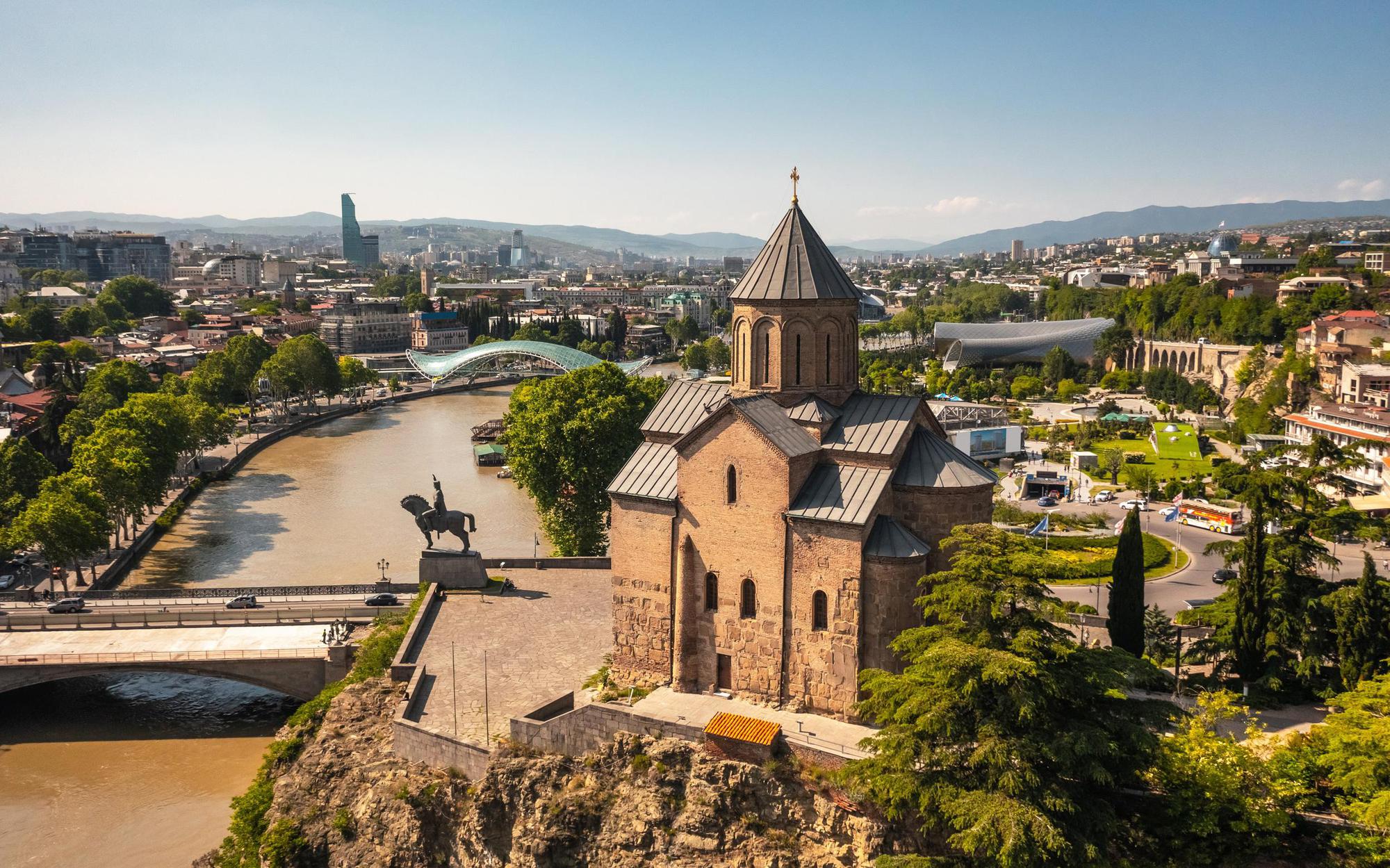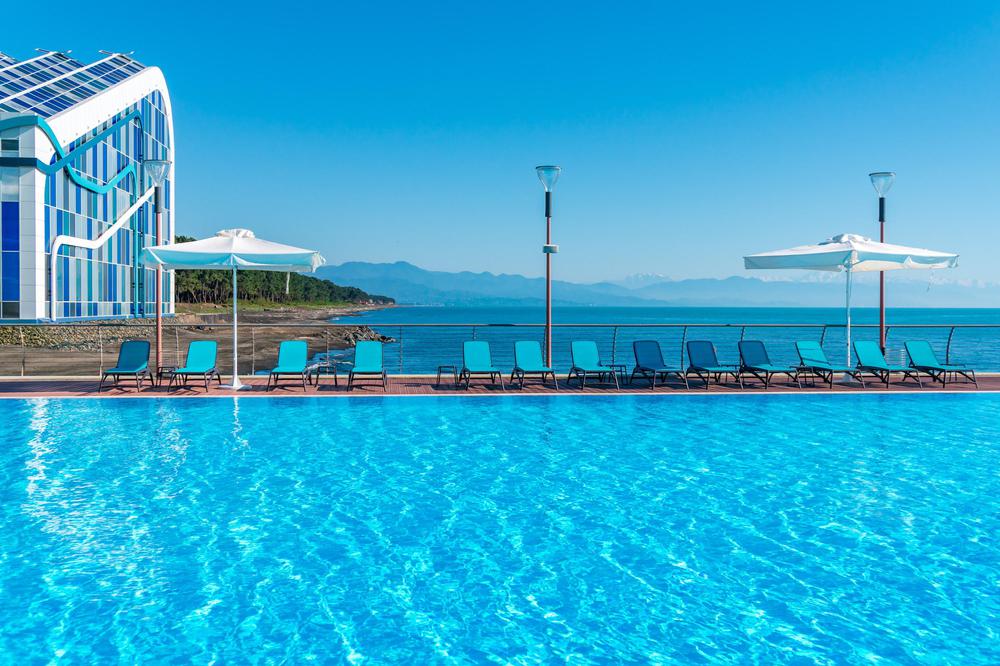Introduction
Tbilisi's sulfur baths have long been a cherished part of Georgian culture, providing both relaxation and therapeutic benefits to locals and visitors alike. Steeped in history and tradition, these baths have played a significant role in shaping the unique identity of Georgia's capital city. This article aims to take you on a journey through the fascinating world of Tbilisi's sulfur baths, delving into their rich past, their importance in Georgian society, and how you can enjoy this quintessential Georgian experience for yourself.
A Brief History of Tbilisi's Sulfur Baths
The Origins and Development of Sulfur Baths in Tbilisi
The history of Tbilisi's sulfur baths dates back to the city's founding in the 5th century when King Vakhtang Gorgasali discovered the natural hot springs while hunting. The city's name, Tbilisi, is derived from the Georgian word "tbili," meaning warm, a clear nod to these thermal waters. Over the centuries, the sulfur baths became an integral part of Tbilisi's urban landscape, with bathhouses built around the springs in the Abanotubani district.
Famous Historical Figures Who Have Visited the Baths
I have never encountered anything more luxurious than these Tbilisi baths, neither in Russia nor in Turkey.
Tbilisi's sulfur baths have attracted numerous prominent figures throughout history, including the Russian poet Alexander Pushkin, who famously praised the baths during his visit in 1829, declaring: "I have never encountered anything more luxurious than these Tbilisi baths, neither in Russia nor in Turkey." Other notable visitors include French writer Alexandre Dumas and Russian playwright Anton Chekhov, both of whom experienced the baths' rejuvenating properties firsthand.
The Role of Sulfur Baths in Georgian Society
Sulfur baths have played a crucial role in Georgian society, serving as a gathering place for socializing, conducting business, and even matchmaking. In addition to their recreational and social aspects, the baths were valued for their therapeutic benefits, with the sulfur-rich waters believed to have healing properties for various ailments. Today, Tbilisi's sulfur baths continue to be an essential part of Georgian culture, where visitors can immerse themselves in centuries-old traditions and enjoy a unique spa experience.
Abanotubani: The Bath District
Nestled in the heart of Tbilisi, the Abanotubani district is an enchanting area where the city's historic sulfur baths are concentrated. Known for its narrow cobblestone streets, charming balconies, and picturesque surroundings, this district is a must-visit destination for anyone seeking a unique cultural experience.
The Architectural Beauty and Significance of the Bathhouses
The bathhouses of Abanotubani showcase a fascinating blend of Persian, Georgian, and Byzantine architectural styles, which reflect the city's diverse history. These buildings are characterized by their distinctive brick domes, which help to trap the steam from the hot sulfur waters beneath. The interiors are often adorned with intricate tilework and vaulted ceilings, further adding to their allure.
How the District has Evolved Over the Years
While the sulfur baths have been the centerpiece of Abanotubani for centuries, the district has undergone significant changes over the years. New cafes, restaurants, and boutique hotels have sprung up, making the area a vibrant hub of activity. Despite this modernization, the essence of Abanotubani remains true to its roots, allowing visitors to immerse themselves in the authentic atmosphere of Tbilisi's traditional spa culture.
The Healing Properties of Sulfur Water
The Mineral Composition of Sulfur Water
Sulfur water, which flows naturally from the hot springs beneath Tbilisi, is rich in a variety of minerals, including sulfur, calcium, magnesium, and sodium. This unique composition is what gives the water its distinct odor and therapeutic qualities, making it a sought-after natural remedy for various ailments.
Health Benefits and Therapeutic Uses
The healing properties of sulfur water have been known for centuries and are believed to provide relief for a wide range of conditions. The water is thought to help alleviate skin issues such as eczema, psoriasis, and acne, as well as soothe aching muscles and joints. It is also said to improve blood circulation, boost the immune system, and promote overall relaxation and wellbeing.
The Importance of Sulfur Water in Georgian Spa Culture
Sulfur water has long been a cornerstone of Georgian spa culture, with people flocking to the sulfur baths to experience their rejuvenating effects. This ancient tradition continues today, as both locals and tourists alike seek out the healing properties of Tbilisi's sulfur baths. The prevalence of these baths in the city's history and culture is a testament to the enduring allure of sulfur water and its therapeutic benefits.
Experiencing the Sulfur Baths: What to Expect
Step-by-Step Guide to Visiting a Sulfur Bathhouse
- Choose a bathhouse: There are several sulfur bathhouses in Tbilisi, each with its own unique atmosphere and offerings. Research the various options and select one that suits your preferences and budget.
- Make a reservation: While some bathhouses accept walk-ins, it's advisable to make a reservation in advance, especially during peak tourist season or on weekends.
- Prepare for your visit: Bring your own bathing suit, towel, and flip-flops, although some bathhouses may provide these items for a fee.
The Process of Bathing and Receiving Treatments
- Check-in: Upon arrival, you'll check in at the reception and pay for your chosen services, such as a private bath, massage, or scrub.
- Change and shower: In the changing area, remove your clothes and put on your bathing suit. Take a quick shower before entering the bath to rinse off any dirt or sweat.
- Enjoy the bath: Immerse yourself in the sulfur water, adjusting to the temperature, which typically ranges between 38-45°C (100-113°F). Soak for 10-15 minutes, then take a break to cool down before repeating the process.
- Receive treatments (optional): If you've booked a massage or scrub, a bath attendant will perform the service while you relax in the bath area.
- Rinse and relax: After your soak, rinse off in a shower to remove the sulfur residue from your skin. Take a moment to relax in the lounge area before getting dressed and leaving the bathhouse.
Etiquette and Cultural Considerations
- Respect privacy: Some bathhouses have separate areas for men and women or offer private rooms for individuals or groups. Be mindful of other guests' privacy and personal space.
- Keep noise levels low: The sulfur baths are meant to be a place of relaxation, so keep conversations and noise to a minimum.
- Follow the dress code: Bathing suits are typically required, and nudity is generally not permitted in public areas of the bathhouse.
- Be mindful of hygiene: Shower before entering the bath and avoid using soap or other products while soaking in the sulfur water.
Top Sulfur Bathhouses in Tbilisi
Recommendations for the Best Sulfur Bathhouses in Tbilisi
- Orbeliani Baths: This iconic blue-tiled bathhouse is known for its stunning Persian-inspired architecture and offers a range of services, including private baths, massages, and scrubs.
- Chreli Abano: With its luxurious ambiance and modern facilities, Chreli Abano provides a high-end bathing experience, complete with private rooms, spa treatments, and even a rooftop terrace.
- Gulo's Thermal Spa: This popular choice among locals and tourists alike boasts a friendly atmosphere and affordable prices, making it an excellent option for those on a budget.
Comparing the Facilities and Services Offered
- Private vs. public baths: Some bathhouses offer both private and public bathing areas, allowing you to choose the level of privacy you desire. Private rooms typically cost more but provide a more intimate experience.
- Treatments and services: Consider the range of treatments and services offered by each bathhouse, such as massages, body scrubs, and facials. Prices and quality can vary, so it's worth comparing your options before making a decision.
- Amenities: Look into the amenities provided by each bathhouse, such as towel and bathing suit rentals, lockers, changing rooms, and relaxation areas.
Tips for Choosing the Right Bathhouse for Your Needs
- Budget: Determine how much you're willing to spend on your sulfur bath experience and select a bathhouse that fits within your budget.
- Atmosphere: Consider the ambiance and design of each bathhouse. Some may have a more traditional and historic feel, while others may be more modern and luxurious.
- Reviews: Read online reviews and ask for recommendations from locals or fellow travelers to get a better sense of each bathhouse's reputation and offerings.
- Location: Choose a bathhouse that is conveniently located within the Abanotubani district, allowing you to easily explore the surrounding area before or after your visit.
Beyond Bathing: Other Activities and Attractions in Abanotubani
Exploring the Surrounding Historical Sites and Landmarks
- Narikala Fortress: This ancient fortress overlooks the city and offers stunning views of Tbilisi. Wander through its historic ruins and learn about its rich history dating back to the 4th century.
- Metekhi Church: Just a short walk from Abanotubani, this 13th-century church is perched on a cliff above the Mtkvari River and features a statue of King Vakhtang Gorgasali, the founder of Tbilisi.
- Legvtakhevi Waterfall: Tucked away in the heart of the city, this picturesque waterfall is just steps away from the sulfur baths and provides a serene spot for relaxation.
Sampling Traditional Georgian Cuisine at Nearby Restaurants
- Culinarium Khasheria: This stylish restaurant serves up delicious Georgian fare, including traditional dishes like khashi (tripe soup) and khinkali (dumplings).
- Old City Wall: Situated in a historic building with a cozy atmosphere, this restaurant offers an authentic Georgian dining experience with an array of local dishes and fine wines.
- Parnas Café: For a more casual dining option, this quaint café serves up tasty Georgian and European dishes in a relaxed setting.
Shopping and Entertainment Options in the Area
- Meidan Bazaar: This underground bazaar near Abanotubani is a treasure trove of traditional Georgian crafts, souvenirs, and antiques. Browse the stalls for unique finds and mingle with local artisans.
- Gallery 27: This art gallery and boutique showcases the work of contemporary Georgian artists and designers, making it the perfect place to pick up a unique souvenir or gift.
- Puppet Theater Rezo Gabriadze: Just a stone's throw from the sulfur baths, this charming puppet theater hosts regular performances of Georgian playwright Rezo Gabriadze's enchanting productions, providing an entertaining cultural experience for all ages.
Conclusion
The Unique Allure of Tbilisi's Sulfur Baths and Their Significance in Georgian Culture
Tbilisi's sulfur baths are an integral part of Georgian culture, offering visitors a truly unique and immersive experience. With their rich history, therapeutic properties, and stunning architecture, the baths have captivated the hearts of locals and travelers alike for centuries.
When visiting Tbilisi, don't miss the opportunity to indulge in the time-honored tradition of bathing in sulfur waters. Whether you're seeking relaxation, healing, or a deeper understanding of Georgian culture, the sulfur baths provide an unforgettable experience.
As you plan your visit to Tbilisi, set aside time to explore the enchanting Abanotubani district and its sulfur baths. Choose a bathhouse that suits your needs, and take the time to truly appreciate the history and culture surrounding this fascinating practice. Afterward, continue your exploration of the area by visiting the nearby historical sites, sampling delicious Georgian cuisine, and experiencing the vibrant local arts scene. This unforgettable journey will leave you with a deeper appreciation for Georgia's rich cultural heritage.









 The Healing Powers of Nature
The Healing Powers of Nature
 Relax and Rejuvenate
Relax and Rejuvenate
 Abanotubani Tbilisi Sulfur Baths
Abanotubani Tbilisi Sulfur Baths
 Sulfur Baths of Borjomi
Sulfur Baths of Borjomi
 Balneological Resort of Sairme
Balneological Resort of Sairme
 Tbilisi Hammams
Tbilisi Hammams
 How to Take a Sulphur Bath
How to Take a Sulphur Bath








